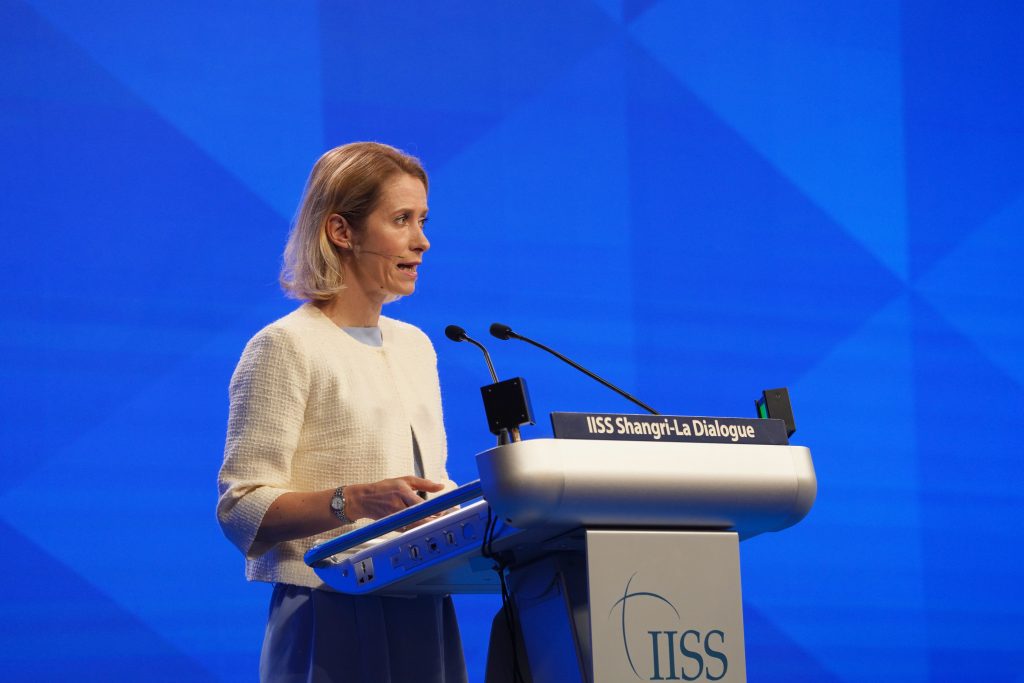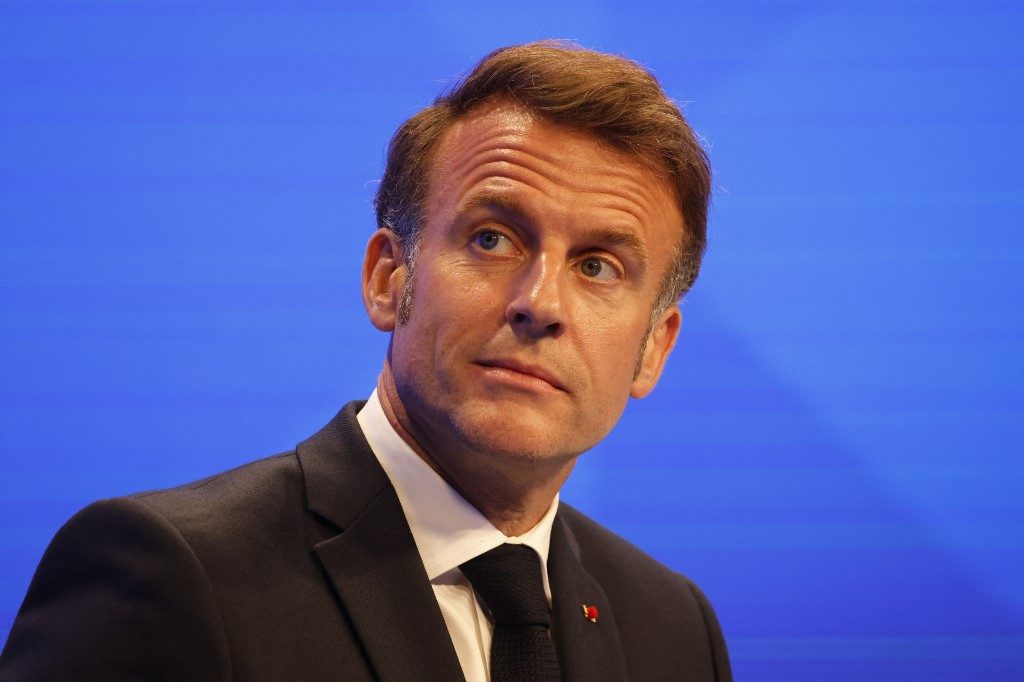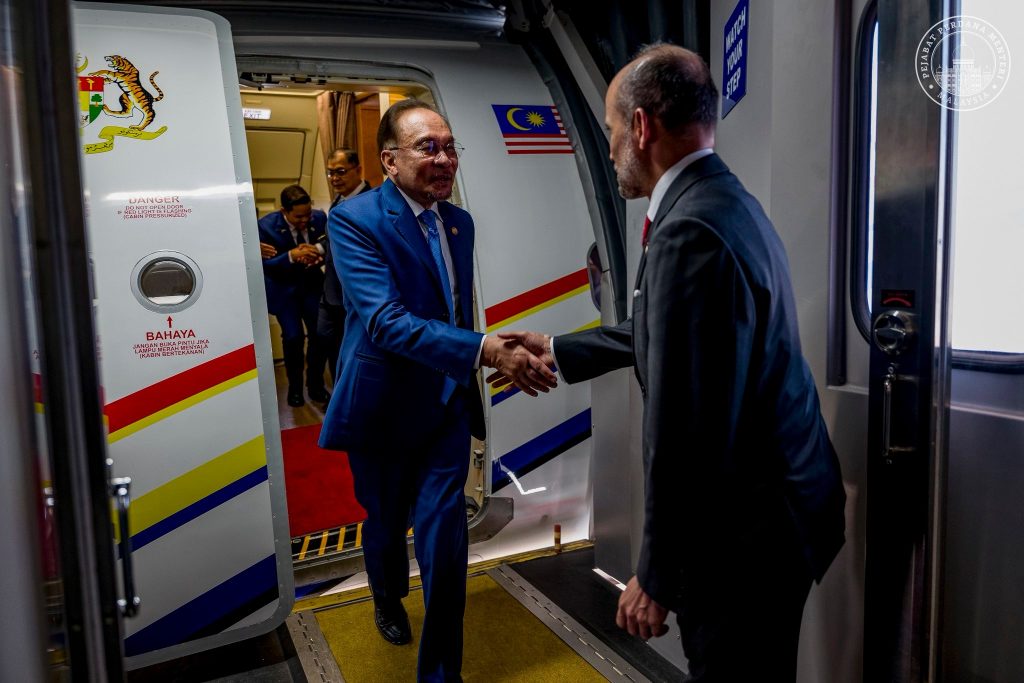
US Defense Secretary Pete Hegseth pressed US partners in Asia to boost defense spending toward 5% of gross domestic product, warning that more urgency is needed to prepare for a potential Chinese invasion of Taiwan.
Speaking in Singapore, Hegseth acknowledged that many Asian nations try to balance economic ties with China and defense ties with the US. But he said those relationships complicate decisions during times of tension. And he made clear that President Donald Trump’s administration would apply the NATO model to the region — aggressively demanding countries spend more to defend themselves.
“NATO members are pledging to spend 5% of their GDP on defense — even Germany,” Hegseth said Saturday at the Shangri-La Dialogue. “So it doesn’t make sense for countries in Europe to do that while key allies in Asia spend less on defense in the face of an even more formidable threat, not to mention North Korea?”
The speech — his first major outline of Washington’s approach to Indo-Pacific security — fit with a broad push by members of the Trump administration to shift their focus from Europe’s defense to Asia and particularly China, which US officials have for years said is the premier threat facing the US.
It will also force tough decisions for many US allies and partners in Asia, which aren’t spending anywhere close to 5% of GDP on defense. As of last year, South Korea led the region with 2.6% of GDP, followed by Taiwan, Australia, Japan and the Philippines, according to the Stockholm International Peace Research Institute.
The US also doesn’t spend 5% of GDP on defense, though it pours more into military spending than any other nation.
‘Fanciful’ Request
Hegseth echoed sentiments that Trump laid out in a speech in Saudi Arabia in May, saying the US didn’t want to “pressure other countries to embrace and adopt our politics or ideology,” adding that “we’re not here to impose our will on you.”
One attendee praised the “pragmatic respect” toward the region shown in Hegseth’s speech, but said some of the expectations were unrealistic.
“The call for Asian allies to follow Europe’s example by ramping up defense spending to 5% of GDP is fanciful,” said Shahriman Lockman, an analyst at the Institute of Strategic and International Studies in Malaysia. “Unlike NATO members facing a hot war on their doorstep, Asian states sit in a far murkier strategic environment, where escalation is feared more than deterrence flaunted.”
Hegseth also sought to reassure Chinese officials — who reject accusations that they plan to attack Taiwan — by saying that the US doesn’t seek war with China. Yet he followed that up quickly by noting that “nobody knows what China will ultimately do, but they are preparing, and therefore we must be ready as well.”
The defense secretary’s focus on China prompted the European Union’s top diplomat to say the US should also maintain a hard line on Moscow and its war in Ukraine, after Trump faced criticism for being too accommodating to Russian President Vladimir Putin.
“If you are worried about China, you should be worried about Russia,” EU foreign policy chief Kaja Kallas said in a panel following Hegseth’s speech.
It was the US defense chief’s second visit to the region, after he visited Japan and the Philippines in March.
The Singapore forum has previously been a place where the top defense officials from the US and China meet, even during times of tension, but Chinese Defense Minister Dong Jun is skipping this year’s event. Hegseth pointed that absence out in his speech when he said “we are here this morning — somebody else isn’t.”
Last year, then-Defense Secretary Lloyd Austin touted improving relations with Beijing even as he highlighted Washington’s efforts to rally regional partners to counter China. Now tensions are on the rise again.
Trump on Friday accused China of violating an agreement with the US to ease tariffs. His administration has introduced new restrictions on the sale of chip design software, and announced earlier this week it would start revoking some Chinese student visas, a move that Beijing has blasted as “discriminatory.”
The lack of meetings between the US and China “is a loss,” said Da Wei, director of the Center for International Security and Strategy at Tsinghua University. But he also called Hegseth’s remarks “provocative” and said the secretary’s tone was “not constructive — it will only invite more trouble and confrontation.”
The US strategy of raising tariffs against allies in Asia will make Hegseth’s call for higher defense spending more difficult and ultimately increase economic instability, Da Wei added.
While Hegseth made clear that Washington won’t abandon its allies, he signaled that the Trump administration will still press them to invest more in their defense industrial bases. And he warned that “urgency and vigilance” is the only option.
“The only way to ensure lasting alliances and partnerships is to make sure that each side does its part,” he said. –BLOOMBERG
RELATED ARTICLES

Europe sees China-Russia threat as world’s ‘greatest challenge’

French president Macron calls for Europe-Asia alliance to counter global coercion

Prime minister Anwar Ibrahim arrives in Singapore for Shangri-La Dialogue
The post Hegseth warns allies about China, presses defense spending appeared first on The Malaysian Reserve.
